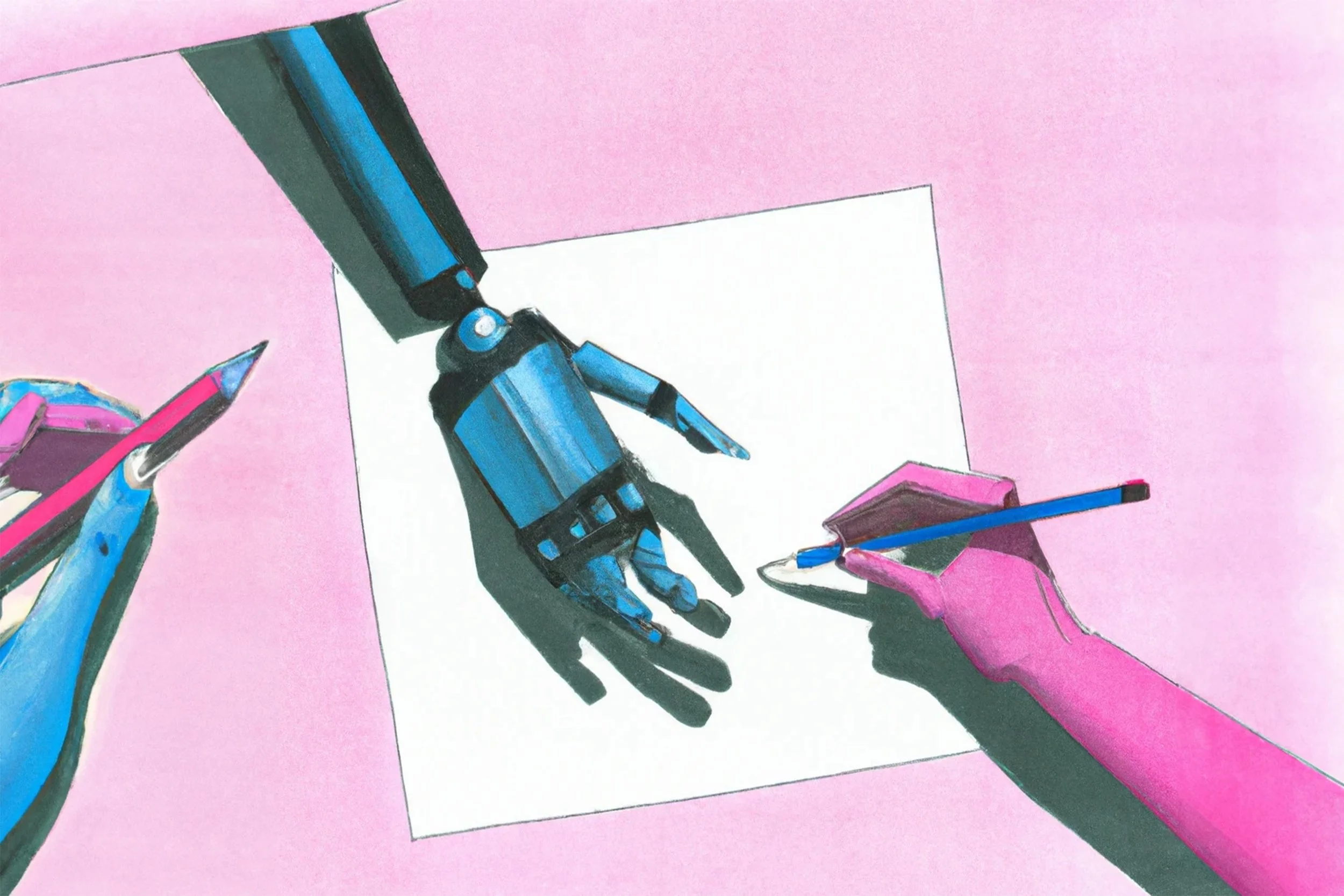"AI and the Future of the Creative Industry"
The creative industry, which includes fields such as advertising, film, music, and graphic design, has always been driven by innovation and new technologies. With the advent of artificial intelligence (AI), the industry is on the brink of yet another major shift.
One of the most significant ways that AI is already impacting the creative industry is through the automation of certain tasks. For example, AI algorithms can now generate basic visual designs, music, and even writing pieces. This has the potential to free up creative professionals from repetitive and time-consuming tasks, allowing them to focus on higher-level conceptual work. Alongside this, AI can enhance the success of certain aspects of the creative industry by using machine learning algorithms that can analyse data and make predictions about what types of content will be successful. This can help companies and individuals make better decisions about what types of projects to invest in and can also help to identify emerging trends in the industry.
Another area where AI is making a significant impact in the creative industry is the field of painting. AI algorithms are now capable of creating new, unique paintings that are indistinguishable from those created by human artists. This technology is based on deep learning, where an algorithm is trained on a dataset of existing paintings and then uses this knowledge to generate new, original works. This technology is not only limited to reproducing styles of the past but also to coming up with new and unseen styles of art.
One of the most exciting applications of AI painting is the ability to generate an infinite number of variations on a single theme, allowing for the exploration of different colour palettes, brushstrokes, and compositions. This opens new possibilities for art collectors, curators, and galleries to explore and present new art. However, it's important to note that AI-generated art is still in its infancy and there is an ongoing debate about its value as true art. Some argue that since art is created by a machine, it lacks the emotional depth and humanity of art created by human artists. But others argue that AI-generated art can be just as meaningful and valuable as art created by humans.
In the film and video industry, AI is being used to create storyboards as a way to streamline the pre-production process. A storyboard is a visual representation of a film's scenes, often used by filmmakers to plan out the shots and sequences of a movie before filming begins.
One example of an AI-powered storyboard tool is the "AI Storyboard Creator" developed by the University of California, Berkeley. This tool uses machine learning algorithms to analyze a script and create a storyboard based on the script's characters, locations, and actions. The AI Storyboard Creator can also generate different storyboard versions based on the filmmaker's preferences, such as the camera angles and shot types.
Another example is the "AI Storyboard Artist" developed by Adobe, which uses artificial intelligence to generate storyboards based on a script and the user's preferences. The AI Storyboard Artist can analyze the script, create a visual representation of the scene and also suggest different camera angles and shot types.
AI-powered storyboard tools have the potential to save filmmakers a significant amount of time and effort. These tools can quickly create visual representations of scenes based on the script, allowing filmmakers to focus on the creative aspects of the film rather than spending time on the technical aspects of storyboarding. Additionally, it can also assist in identifying potential issues with the story, blocking or pacing before the filming starts.
Despite all of these points, it's important to note that AI does not replace human creativity. Artificial intelligence can assist and enhance human creativity but ultimately it's the human touch that is irreplaceable.
Overall, AI has the potential to revolutionise the creative industry in a positive way. It can help to streamline processes, improve efficiency, and open up new opportunities for creativity and innovation. However, it's important for the industry to adapt and evolve to the new technologies in a responsible way, ensuring that human creativity remains at the heart of the industry.
PS. This article was all written by AI technology. Mind. Blown.

